Related Research Articles
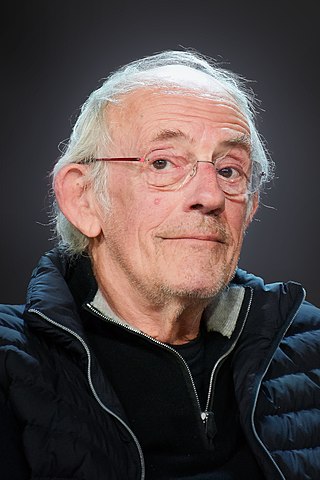
Christopher Allen Lloyd is an American actor. He has appeared in many theater productions, films, and on television since the 1960s. He is known for portraying Dr. Emmett "Doc" Brown in the Back to the Future trilogy (1985–1990) and Jim Ignatowski in the comedy series Taxi (1978–1983), for which he won two Emmy Awards.
A rock musical is a musical theatre work with rock music. The genre of rock musical may overlap somewhat with album musicals, concept albums and song cycles, as they sometimes tell a story through the rock music, and some album musicals and concept albums become rock musicals. Notable examples of rock musicals include Next to Normal, Spring Awakening, Rent, Grease, and Hair. The Who's Tommy and other rock operas are sometimes presented on stage as a musical.

Spoleto Festival USA in Charleston, South Carolina, is one of America's major performing arts festivals. It was founded in 1977 by Pulitzer Prize-winning composer Gian Carlo Menotti, who sought to establish a counterpart to the Festival dei Due Mondi in Spoleto, Italy.

Alvin Ailey Jr. was an American dancer, director, choreographer, and activist who founded the Alvin Ailey American Dance Theater (AAADT). He created AAADT and its affiliated Alvin Ailey American Dance Center as havens for nurturing Black artists and expressing the universality of the African-American experience through dance.
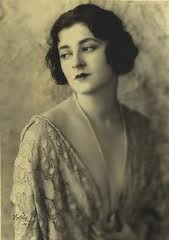
Lucille Lortel was an American actress, artistic director, and theatrical producer. In the course of her career Lortel produced or co-produced nearly 500 plays, five of which were nominated for Tony Awards: As Is by William M. Hoffman, Angels Fall by Lanford Wilson, Blood Knot by Athol Fugard, Mbongeni Ngema's Sarafina!, and A Walk in the Woods by Lee Blessing. She also produced Marc Blitzstein's adaptation of Bertolt Brecht and Kurt Weill's Threepenny Opera, a production which ran for seven years and according to The New York Times "caused such a sensation that it...put Off-Broadway on the map."

The Festival dei Due Mondi(Festival of the Two Worlds) is an annual summer music and opera festival held each June to early July in Spoleto, Italy, since its founding by composer Gian Carlo Menotti in 1958. It features a vast array of concerts, opera, dance, drama, visual arts and roundtable discussions on science.

Antony and Cleopatra, Op. 40, is an opera in three acts by American composer Samuel Barber. The libretto was prepared by Franco Zeffirelli. It was based on the play Antony and Cleopatra by William Shakespeare and made use of Shakespeare's language exclusively.
Edward Barnes is an American composer and producer.
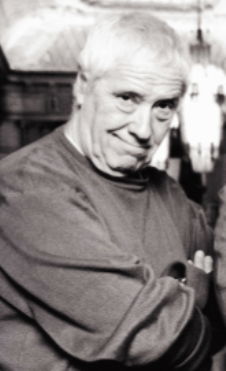
Arnold Weinstein was an American poet, playwright, and librettist, who referred to himself as a "theatre poet".
Francis "Chip" Menotti is an actor and former figure skater who was the president and artistic director of Festival dei Due Mondi.
Richard Cross is an American bass-baritone who had an active international opera career from the late 1950s through the 1990s. Possessing a rich and warm voice, Cross sang a broad repertoire that encompassed works from a wide variety of musical periods and styles. He currently teaches on the voice faculties of the Yale School of Music, the Juilliard School, and the State University of New York at Stony Brook.
Le Testament de Villon is an opera composed in 1923 by the American poet Ezra Pound, with assistance from George Antheil. It is based on Le Testament, a collection of poems written by François Villon in 1461.
Beverly Emmons is an American lighting designer for the stage, dance and opera.
Simon Rice trained at the Royal Ballet Schools before joining The Royal Ballet Company in 1982, becoming a First Soloist in 1989.
Gloria Lane Krachmalnick was an American operatic mezzo-soprano who had an active international performance career from 1949 to 1976. In her early career she distinguished herself by creating roles in the world premieres of two operas by Gian Carlo Menotti, the Secretary of the Consulate in The Consul (1950) and Desideria in The Saint of Bleecker Street (1954); both roles which she performed in successful runs on Broadway and on international tours. For her performance in The Consul she was awarded a Clarence Derwent Award and two Donaldson Awards.
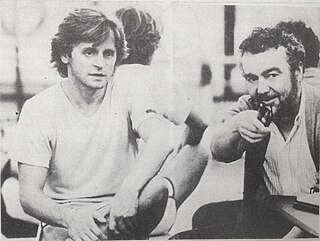
PierLuigi Samaritani was a renowned opera director/production designer, who began his career at a young age, working alongside some of the greatest names in theatre, opera and ballet, such as Lila de Nobili, Giancarlo Menotti, Franco Zeffirelli, Luciano Pavarotti, Mikhail Baryshnikov, Rudolf Nureyev and many more. Samaritani had an enormous talent, which allowed him to take on all the roles the theatre, opera and ballet demanded, making sure to always be involved in all aspects of his productions even when delegating. From the creation of his "sketches" of the set, which were more like works of art in and of themselves to the smallest change in an extra’s costume, he was a true perfectionist preoccupied with every detail. His productions graced the stage of countless opera houses and theaters, amongst them La Scala di Milano, Teatro Regio of Parma, The Metropolitan Opera House, American Ballet Theatre and the Festival of Two Worlds at Spoleto, where he collaborated for many years, alongside his dear friend, Gian Carlo Menotti. The Teatro Lirico Sperimentale di Spoleto founded in 1947 in Spoleto, by Adriano Belli created a special award carrying the name of Pier Luigi Samaritani, awarded each year to the set designer with the best set design of the opera season.

Gian Carlo Menotti was an Italian composer, librettist, director, and playwright who is primarily known for his output of 25 operas. Although he often referred to himself as an American composer, he kept his Italian citizenship. One of the most frequently performed opera composers of the 20th century, his most successful works were written in the 1940s and 1950s. Highly influenced by Giacomo Puccini and Modest Mussorgsky, Menotti further developed the verismo tradition of opera in the post-World War II era. Rejecting atonality and the aesthetic of the Second Viennese School, Menotti's music is characterized by expressive lyricism which carefully sets language to natural rhythms in ways that highlight textual meaning and underscore dramatic intent.
Nervi International Ballet Festival held during summer in Nervi from 1955 to 2004 was the first event entirely dedicated to dance in post-war Italy. Together with the Festival dei Due Mondi in Spoleto it is considered the most significant event of the Italian dance scene.
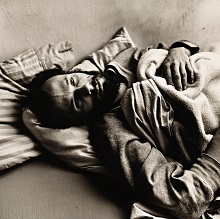
Alan Huber Lloyd was an American composer, primarily known for his scores for the theatrical works of Robert Wilson and the ballets of Andy de Groat. His score for Wilson's A Letter for Queen Victoria was nominated for Best Original Score at the 29th Tony Awards. He also composed works for solo piano and for chamber ensembles in a conservative tonal style.
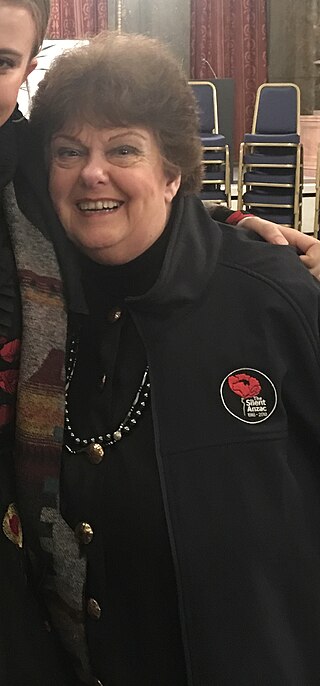
Margaret Haggart is an Australian operatic soprano and community arts founder based in Melbourne, Australia. Her career spans over 90 operatic, operetta and cabaret roles, performed in the United Kingdom, Italy, France, the United States of America, South America, Singapore, New Zealand and Australia. She is a board member of Melbourne Opera, Green Room Awards and a committee member for the now finished Mietta Song Competition.
References
- ↑ Barnes, Clive (22 June 1974). "Theater: A Robert Wilson at Spoleto". The New York Times . Retrieved 8 May 2019.
- ↑ Perelman, Bob (1998). "Speech Effects: The Talk as a Genre" in Close Listening: Poetry and the Performed Word, p. 213. Oxford University Press. ISBN 0195355075
- 1 2 Dietz, Dan (2015). The Complete Book of 1970s Broadway Musicals, pp. 249–251. Rowman & Littlefield. ISBN 1442251662
- ↑ O'Mahony, John (19 May 2001). "Mystery plays". The Guardian . Retrieved 8 May 2019.
- ↑ Barnes, Clive (24 March 1975). "Theater: Or Is It Theater? Have No Preconceptions". The New York Times . Retrieved 8 May 2019.